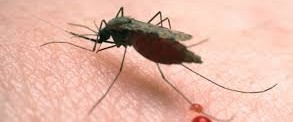Woldesemayat EM, Datiko DG, Lindtjørn B. Follow-Up of Chronic Coughers Improves Tuberculosis Case Finding: Results from a Community-Based Cohort Study in Southern Ethiopia. PLoS ONE 2015; 10(2): e0116324.
Abstract
Background
Untreated smear-positive tuberculosis (TB) patients are the primary source of infection; however, a large number of TB cases have not been identified and are untreated in many sub-Saharan African countries, including Ethiopia. This study determined whether or not a community-based follow-up of chronic coughers improves detection of TB cases and the risk factors for death among such cases.
Methods
We conducted a census in six rural communities in Sidama, southern Ethiopia. Based on interview and sputum investigation, we identified 724 TB smear-negative chronic coughers, and did a cohort study of these chronic coughers and 1448 neighbourhood controls. For both chronic coughers and neighbourhood controls, we conducted a TB screening interview and performed sputum microscopy, as required, at 4, 7 and 10 months. Between September 2011 and June 2012, we followed chronic coughers and neighbourhood controls for 588 and 1,204 person-years of observation, respectively.
Results
Of the chronic coughers, 23 developed smear-positive TB (incidence rate = 3912/105 person-years) compared to three neighbourhood controls who developed smear-positive TB (incidence rate = 249/105 person-years). The male-to-female ratio of smear-positive TB was 1:1. We demonstrated that chronic coughers (adjusted hazards ratio [aHR], 13.5; 95% CI, 4.0–45.7) and the poor (aHR, 2.6; 95% CI, 1.1–5.8) were at high-risk for smear-positive TB. Among the study cohort, 15 chronic coughers and two neighbourhood controls died (aHR, 14.0; 95% CI, 3.2–62.4).
Conclusion
A community-based follow-up of chronic coughers is helpful in improving smear-positive TB case detection, it benefits socioeconomically disadvantaged people in particular; in rural settings, chronic coughers had a higher risk of death.
